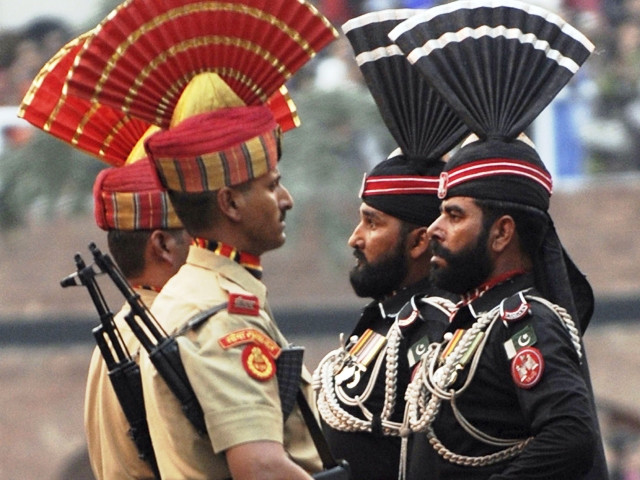Barbed-wire handcuffs
Barbed-wire handcuffs of culture, faith, history, colonialism lock us together & neither wants to tell where keys are

Pakistan and India have been to war four times — the war of 1948 that resulted in the Kashmir dispute that has been the cause of two of the other three wars; the war of 1965, the war of 1971 that saw the birth of Bangladesh and the ‘Kargil War’ of 1999. There is a fifth undeclared war on the Siachen glacier that started in 1984 and remains ongoing. In purely military terms, Pakistan has not ‘won’ any of these wars and has paid — and continues to pay — a dreadful price in men, material, and economic and social development. India pays a price as well, but proportionately far smaller than the price we pay to maintain one of the longest-running conflicts on the planet.
For a decade, the flashpoint has been the Line of Control (LoC) and there are periodic exchanges of principally artillery and mortar fire across it by both sides. There is never any agreement about who fired first, with both sides accusing each other of atrocities committed in the course of skirmishes, while civilians die on both sides of the line. Mechanisms to defuse tensions put in place by the militaries of India and Pakistan are not always effective, and politically, the temperature varies from mildly elevated to a raging fever, with the current temperature somewhere around the middle of the range.
Against this unchanging background, governments come and go in both countries, and the Kashmir issue is never off the agenda for either. For any conflict to be resolved, there has to be the will to resolve it on both sides. There are always political risks for both sides, there is always going to be a section of the populace in both countries that has no interest in seeing the conflict resolved; and there are always going to be those who seek to derail any meaningful dialogue rather than the empty posturing that is the political bread-and-butter.
Today, the same sterile positions are being maintained. India is having a hissy-fit about who the government of Pakistan speaks to — specifically dialogue with what it describes as ‘separatists’ — and Pakistan maintains that it has a perfect right to speak to whoever it chooses, whatever they are called.
We are — rightly — not ready to accept preconditions for talks and neither is India. Both claim their eagerness for dialogue yet neither appears able to move to a position where dialogue is possible, being steadfastly on different pages on any given day. Kashmir remains a disputed territory and as things stand, is likely to remain so in perpetuity. Such is the length and depth of the conflict between the two nations that it seems as if this conflict will perhaps never be resolved. But this is a state of affairs we must not allow to perpetuate. There has to be some movement towards a meaningful dialogue from both sides and the current status quo cannot be allowed to prevail.
No matter Pakistan’s stated position by the Nawaz Sharif government that it really does want to ‘normalise’ relations with India, it appears that the Indian side is in no mood to bite the bullet, with the Modi government still riding high and advancing its nationalist agenda in local polls since the Indian general election. The barbed-wire handcuffs of culture, faith, history and colonialism lock us together, and neither party is willing to reveal where they have hidden the keys.
Published in The Express Tribune, November 8th, 2014.
Like Opinion & Editorial on Facebook, follow @ETOpEd on Twitter to receive all updates on all our daily pieces.














COMMENTS
Comments are moderated and generally will be posted if they are on-topic and not abusive.
For more information, please see our Comments FAQ